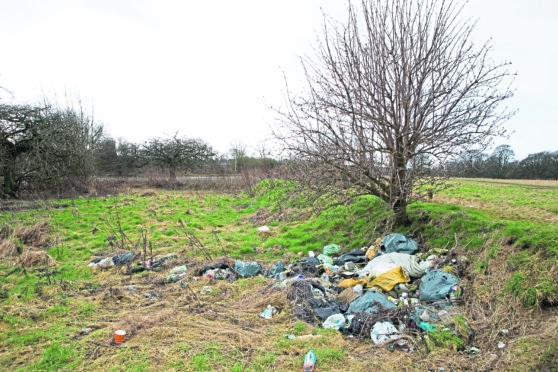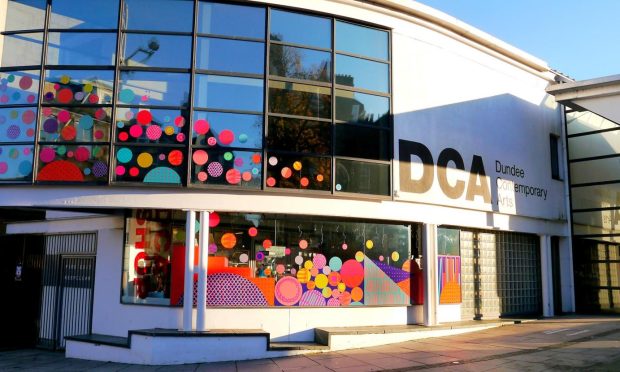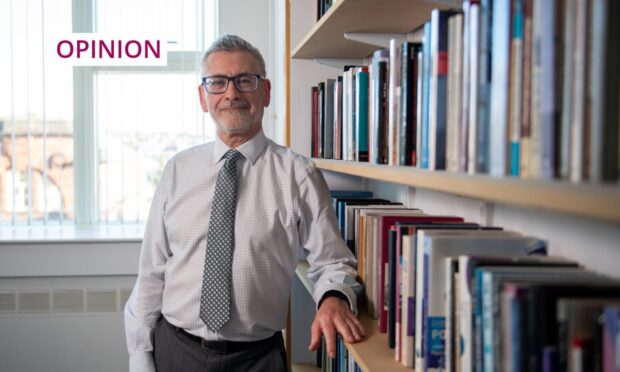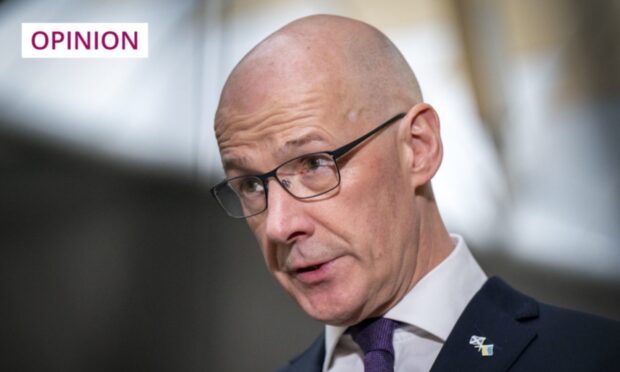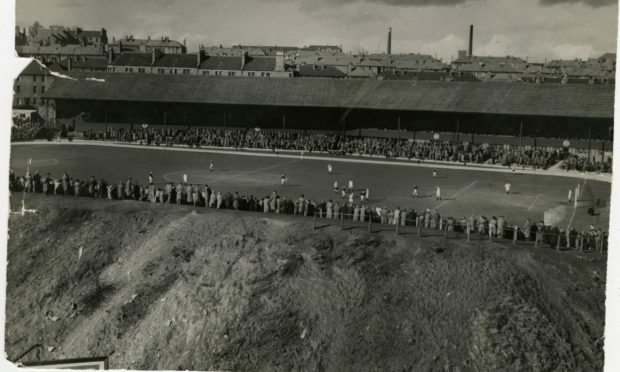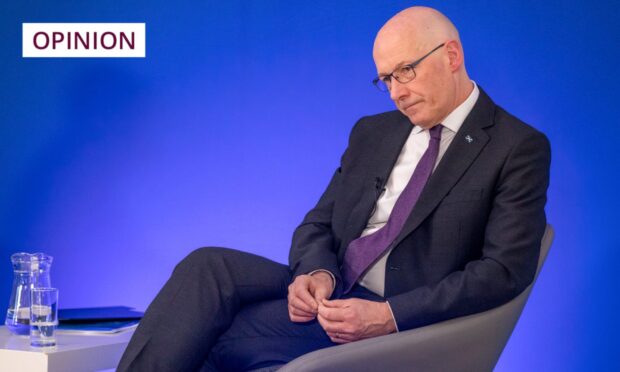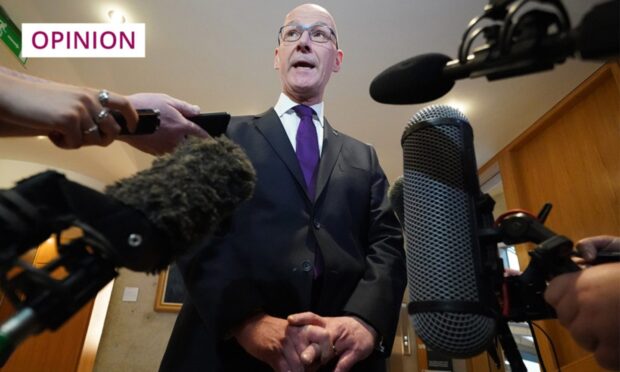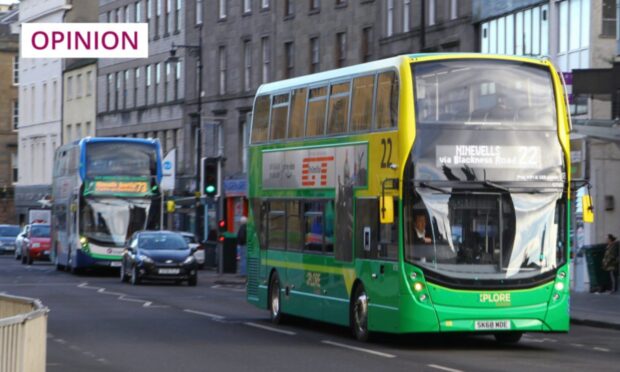Madam, – It is a poor reflection on our communities that so much litter is dumped by the side of roads.
Verges and ditches are spilling over with discarded bottles and food packaging.
We often hear of flytipping of furniture and household waste and that is to be condemned.
But the throwing of litter from vehicles seems to be far more widespread.
I follow a walking route around country roads near Arbroath and see close up what has been thrown out of car windows.
The most common sight is empty beer cans and small wine bottles.
You also see large and empty wine bottles, plastic super strong cider containers and, of course, fast food containers.
I’m surprised that I’ve never heard of anyone being prosecuted for littering from a vehicle because many motorists are obviously doing this.
On a trip to Auchmithie the other week, a ditch had been cleared using a mechanical digger to improve drainage.
In the process the consequence of years of littering was revealed.
As I drove past, you could see a continuous line of debris, thrown from cars over many a year. This is not just an Angus problem. Travel the back roads around Dundee and Perth and you will see the same.
While there is a case for enforcement, the answer lies in the hands of us all. No one should behave in such a slovenly manner.
We are blessed to live in such a beautiful area and we should all play a small part in keeping it that way.
Robert Anderson.
Kirkton,
Arbroath.
Travellers can pay for camping
Madam, – While Travellers camping at the new Perth food and drink camp near North Muirton in Perth undoubtedly cause difficulties for business and planners at Perth and Kinross Council, I can understand why they stop there.
This is a traditional stop-off for Travellers.
For the last five decades I have seen them use the field close to what is now the Arnold Clark showroom at the Triangle.
In the days before the new A9 was built, they used to access the field through a small tunnel below the railway.
In the late 1960s and early 1970s, the Travellers did not use vast caravans like they do not.
They built tents from green tarpaulin, I think they were called gayleys.
These tents had a rounded from like and igloo and were heated by wood-burning stoves. The chimney protruded from the top of the tent.
The tunnels the Travellers used to access the field is still there but I think they now get on to the ground through Arran Road.
Nowadays, the Travellers seem much better off. They have big caravans and expensive cars and I think they coud afford to pay to use a proper site.
Bob Ferguson.
North Muirton,
Perth.
A case to ban private schools
Madam – Dr John Halliday (April 2) makes a good case for the quality and value of the education provided at Dundee High School, but he avoids a very important point: for the 7% in the UK who derive the educational and social advantages of a private education, there are 93% of children who are disadvantaged.
They are not among the 74% of senior judges, 71% of senior military officers, 61% of top doctors, 50% of leading print journalists, 30% of MPs or cabinet ministers who were privately educated, a state of affairs which is clearly unfair, and shows little sign of changing any time soon.
Most of the main movers in the current Brexit debacle: Cameron, Osborne, Johnson, Rees Mogg, Corbyn, McDonnell, and I’m sure many others, were all privately educated, a good enough reason, I would suggest, to have private education in the United Kingdom banned forthwith.
Les Mackay.
5 Carmichael Gardens,
Dundee.
Scotland need not join euro
Madam, – I am struck by the comments from former SNP adviser Alex Bell (April 4) who repeats the same tired old argument that an independent Scotland would have to join the euro.
There are 19 of the 28 EU member countries using the euro. Two have negotiated opt-outs, the UK and Denmark, while seven countries do not fulfil the criteria for joining the euro area.
Any country adopting the euro first has to join the Exchange Rate Mechanism (ERM) for two years.
The ERM was set up to ensure exchange rate fluctuations between the euro and other EU currencies do not disrupt economic stability. Participation in the ERM is voluntary for non-euro countries.
The EU does not have a timetable for countries joining the currency, and it is up to countries to calibrate their path towards the euro.
Reinforcing this Jean-Claude Juncker said in 2017: “I have no intention of forcing countries to join the euro if they are not willing or not able to do so”.
Sweden, which joined the EU in 1995, and has not yet adopted the euro or entered into the ERM. Euro membership was defeated in a referendum in 2003, and the country has no formal timetable for signing up.
It is, therefore, the case that this is a simple case of scaremongering and Scotland could join the EU and keep its own currency indefinitely.
Alex Orr.
2 Marchmont Road,
Edinburgh.
